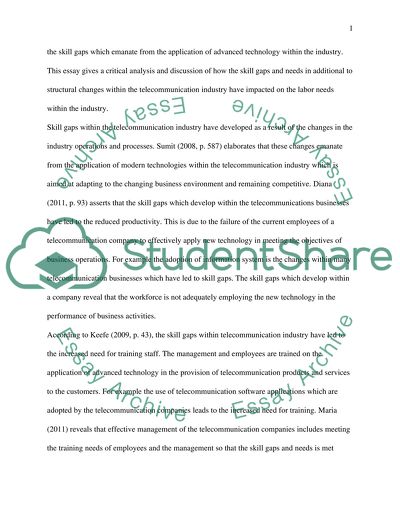Cite this document
(Effect of Skill Gaps in the Telecommunications Industry Coursework, n.d.)
Effect of Skill Gaps in the Telecommunications Industry Coursework. Retrieved from https://studentshare.org/journalism-communication/1451752-taking-one-industry-or-sector-or-the-whole-economy
Effect of Skill Gaps in the Telecommunications Industry Coursework. Retrieved from https://studentshare.org/journalism-communication/1451752-taking-one-industry-or-sector-or-the-whole-economy
(Effect of Skill Gaps in the Telecommunications Industry Coursework)
Effect of Skill Gaps in the Telecommunications Industry Coursework. https://studentshare.org/journalism-communication/1451752-taking-one-industry-or-sector-or-the-whole-economy.
Effect of Skill Gaps in the Telecommunications Industry Coursework. https://studentshare.org/journalism-communication/1451752-taking-one-industry-or-sector-or-the-whole-economy.
“Effect of Skill Gaps in the Telecommunications Industry Coursework”, n.d. https://studentshare.org/journalism-communication/1451752-taking-one-industry-or-sector-or-the-whole-economy.


